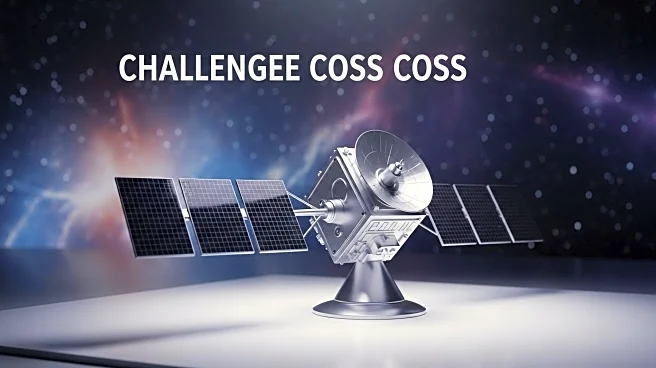What is the story about?
What's Happening?
Brad King, CEO of Orbion Space Technology, addressed the persistent high costs of satellites despite advancements in technology. In a recent podcast, King explained that while satellite prices have decreased, they remain expensive due to factors such as limited production and extensive reliability testing. Satellites, often handbuilt, are priced in the millions, contrasting with mass-produced items like automobiles. King highlighted the complexity of the supply chain, where each tier adds costs due to margins and reliability testing. He noted that vertical integration, akin to SpaceX's model, could reduce costs but requires significant capital investment. The discussion also touched on the risk associated with satellite launches, as once deployed, satellites cannot be retrieved for adjustments.
Why It's Important?
The high cost of satellites impacts the growth of the orbital economy and the accessibility of space technology. Reducing these costs could democratize access to space, benefiting industries reliant on satellite data, such as telecommunications and environmental monitoring. Companies like SpaceX are leading efforts to lower costs through vertical integration, potentially setting new industry standards. However, the financial burden of achieving such integration remains a barrier for many. The discussion underscores the need for innovation in manufacturing processes and supply chain management to make space technology more affordable and reliable.
What's Next?
The industry may see increased consolidation as companies strive for vertical integration to reduce costs. This could lead to fewer suppliers but more comprehensive service offerings. As the demand for small satellites grows, businesses will need to adapt their models to accommodate current pricing realities or innovate to achieve lower costs. The potential for new standards in reliability testing could also emerge, balancing cost reduction with the need for dependable technology. Stakeholders, including venture capitalists and government agencies, will likely continue investing in promising technologies, driving further advancements.
Beyond the Headlines
The conversation highlights ethical considerations in risk management and cost reduction strategies. As companies push for lower prices, the balance between affordability and reliability becomes crucial, especially when customer safety and mission success are at stake. The industry's evolution may also influence regulatory frameworks, as governments seek to ensure safe and sustainable space operations. Long-term, these developments could reshape the competitive landscape, fostering innovation while challenging traditional business models.
















